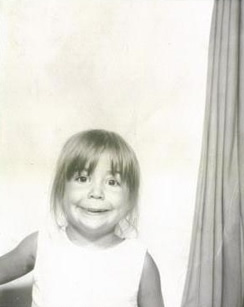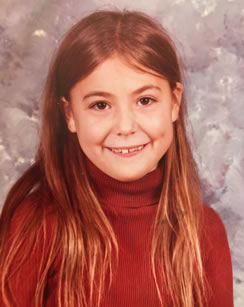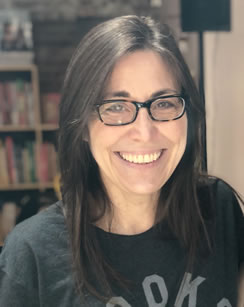I grew up in New York City, where I was lucky enough to go to an elementary school where I could sit in a windowsill, or even under a table, and read a book. On those windowsills, under those tables, and in my two beds at night, I fell in love with books. (I had two beds because my parents were divorced.)
Reading books made me think about writing.
One day when I was all grown up and working as a lawyer, I went to a bookstore (an independent bookstore) and bought an armload of books that I remembered loving as a kid. I read them. Then I went back to the store and bought more books written for children (newer ones). I read them. And then I began to write
The most important thing to know about writing is that there are no rules.
An “official” bio:
Rebecca Stead is a bestselling author of seven novels for young people: When You Reach Me, Liar & Spy, First Light, Goodbye Stranger, Bob (with Wendy Mass), The Lost Library (ditto) and The List of Things That Will Not Change.
Her books have been awarded the Newbery Medal, the Boston Globe/Horn Book Fiction Award and Fiction Honor, and the Guardian Children’s Fiction Prize; shortlisted for the Carnegie Medal, Waterstone’s Book Prize, Barnes & Noble Children’s Book Award, and Premio Strega Ragazze e Ragazza; and named New York Times Notable Books for Children, NPR’s Books We Love, and a Time magazine Top Ten of the Year.
She’s not a fast writer but has learned to embrace her process and urges you to do the same.
I grew up in New York City, where I was lucky enough to go to a school (P.S. 75) where I could sit in a windowsill, or even under a table, and read books.
On those windowsills, under those tables, and in my two beds at night, I fell in love with books. (I had two beds because my parents were divorced.)
Reading books made me think about writing. (The writer Saul Bellow once said that a writer is a reader moved to emulation. That’s me.)
But I didn’t write a lot. You could probably fit every story I wrote before the age of 17 into one (skinny) notebook.
Much, much later, I became a lawyer (I believed that trying to be a writer was impractical), got married, and started working. But I still wrote stories (for adults) when I could find the time.
My first child, a fabulous son, was born. A few years later, I had another fabulous son. There wasn’t much time for writing stories after that. But I still wrote things sometimes.
One day, my three-year-old son, though fabulous, accidentally pushed my laptop off the dining-room table, and my stories were gone. Poof.So. It was time to write something new. Something joyful. I went to a bookstore (a wonderful independent bookstore) and bought a few books that I remembered loving as a kid. I read them again. Then I went back to the store and bought more books written for children (newer ones). I read them. And then I began to write again. This time, for kids.
Some people will tell you that “real writers” don’t use parentheticals (which is silly). The most important thing to know about writing is that there are no rules.
An “official” bio:
Rebecca Stead is a bestselling author of seven novels for young people: When You Reach Me, Liar & Spy, First Light, Goodbye Stranger, Bob (with Wendy Mass), The Lost Library (ditto) and The List of Things That Will Not Change.
Her books have been awarded the Newbery Medal, the Boston Globe/Horn Book Fiction Award and Fiction Honor, and the Guardian Children’s Fiction Prize; shortlisted for the Carnegie Medal, Waterstone’s Book Prize, Barnes & Noble Children’s Book Award, and Premio Strega Ragazze e Ragazza; and named New York Times Notable Books for Children, NPR’s Books We Love, and a Time magazine Top Ten of the Year.
She’s not a fast writer but has learned to embrace her process and urges you to do the same.
Interviews
A few interviews about my books, my childhood, and my writing process:
(“Yeah, I like to talk about weirdness.”)
(“Now I feel like my regular, struggling self”)
(“On many days, I don’t sit down to write at all.”)
(“And one day I just lost my sense of the book’s internal logic.”)
(“Guess who I’m writing a book with?”)
(“With Her Parents Divorcing, A Child Makes ‘The List Of Things That Will Not Change’”)








